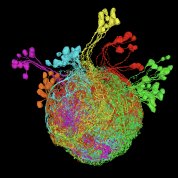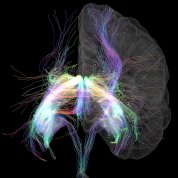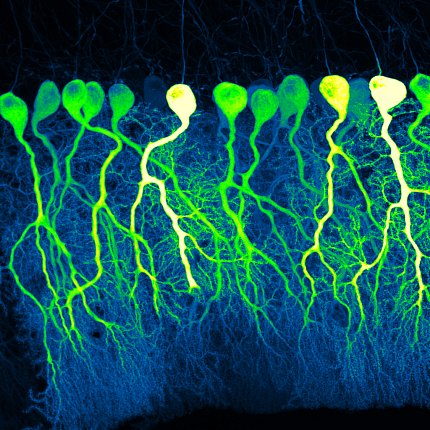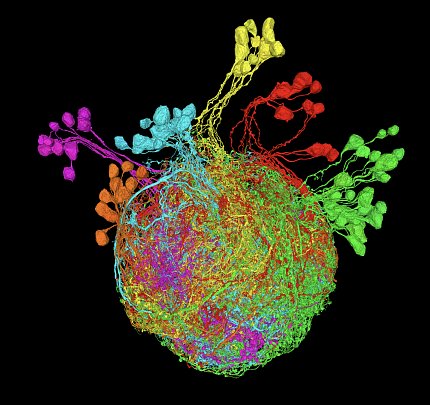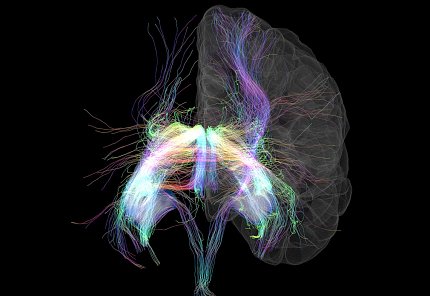BRAIN Initiative Scientists Share Cutting-Edge Research

More than 2,500 participants gathered for the ninth annual Brain Research Through Advancing Innovative Neurotechnologies (BRAIN) Initiative Meeting: Open Science, New Tools on June 12-13.
The two-day hybrid conference brought together federally funded scientists, staff and leadership, as well as non-federal organizations, researchers interested in joining the BRAIN community, media and the public.
The initiative is a large-scale effort funded by NIH, other government agencies and private organizations to revolutionize understanding of the human brain. A major goal is to encourage researchers and organizations from diverse disciplines to work together in their development and application of innovative technologies for brain research. The annual meetings are an important part of this effort.
The 2023 meeting kicked off with a plenary talk, “The Battle for Your Brain,” which explored legal and ethical issues surrounding neurotechnology and artificial intelligence. Featured speaker Dr. Nita Farahany of Duke University discussed the concept of cognitive liberty, which she defined as the right to self-determination over our brains and mental experiences. She addressed both the right to gain access to information about our own brains and the ability to modify them if we choose—but also a right to mental privacy and freedom of thought.
“I believe cognitive liberty will be most powerful if it guides scientific research rather than serving solely as a rights-based mechanism that might in some ways curtail or limit innovation,” Farahany said.

The meeting also included a lecture by Dr. Vanessa Ruta of the Rockefeller University on the neural circuitry in fruit flies that is used to understand how neural circuits are adapted over time to drive behavior, and a talk by Dr. Anil Sheth of Baylor College of Medicine on development of new technologies to personalize treatments of neuropsychiatric disorders.
Other presentations covered a diverse range of topics, such as:
- Cellular atlasing and analysis in human and non-human primate brains
- Genomic and developmental mechanisms of the octopus brain
- Functional manipulation of the central nervous system
- Bioluminescent optogenetics
Both days featured three-minute “flash” talks by trainee award finalists selected from competitive abstract submissions.
During these quick presentations, the awardees gave overviews of their specific contributions to broader BRAIN projects. Participants included scientists at all levels, from high school, undergraduate and graduate programs to medical and other professional schools and postdoctoral fellows and residents.
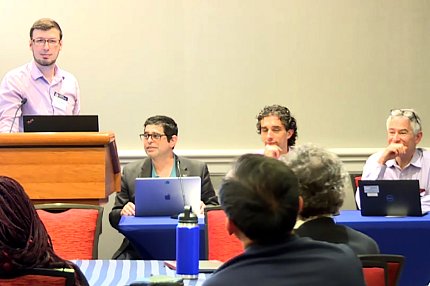
Numerous networking opportunities were also an important component of the meeting. A special session, “BRAIN, Neuroscience and Beyond: Building Our Early Career Community,” involved peer-mentor matching and information sharing about BRAIN funding opportunities for all career stages. In an “Introduction to the NIH and BRAIN Ecosystem for Translation” workshop, scientists shared success stories of receiving NIH funding for their research.
Throughout the meeting, participants were able to interact in person and virtually with speakers, connect with one another, explore posters and chat with presenters about their BRAIN projects and visit exhibits to learn about BRAIN-related organizations.
Posters, exhibit materials, broadcasts and other resources are online through June 2024 at https://eventmobi.com/brainmeeting2023.





